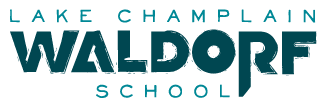Frequently Asked Questions
-
How do we teach reading?
Waldorf education is based on teaching the right topics at the right time. In kindergarten, our curriculum builds phonological awareness through stories and songs, sequencing, repetition, and attention to each word spoken. Mastery of oral communication is seen as critical to all learning. In the first grade, students master the alphabet, translate their thoughts into writing, and learn to read. By taking our time, we strengthen reading comprehension and instill a deep passion for reading and writing in our students.
-
How do we use technology?
We believe technology has a place in education beginning in middle school. We teach Cyber Civics beginning in sixth grade, a year before we introduce computers in the classroom. Our research-based curriculum teaches digital citizenship and media and information literacy. Our high school students use technology for research and reference. Our students quickly master computer technology, and graduates have gone on to have successful careers in the information industry.
-
Where do our graduates go to college?
We are proud that 100% of our high school graduates who apply to 4-year colleges are accepted, and 90% attend within one year of graduating. Colleges love our graduates because they are critical and independent thinkers and emotionally intelligent listeners, and have the ability to tackle new challenges. Our students have been accepted to and have graduated from Bates College, Bennington College, Brown University, Middlebury College, Mount Holyoke College, New York University, Oberlin College, Rhode Island School of Design (RISD), Rochester Institute of Technology, Skidmore College, Smith College, Vassar College, and many other selective colleges and universities. Waldorf graduates reflect a wide diversity of professions and occupations including medicine, law, science, engineering, computer technology, the arts, social science, government, and education.
-
Why do our teachers loop in the lower grades?
A long-term relationship means our teachers connect with students and their families on a deep and meaningful level that opens the door to profound learning. This loving connection and long-term observation enables our teachers to educate the whole child. We see students flourish because of this reliable, attentive structure. Parents also develop a meaningful relationship with their child’s teacher, and often gain support in parenting.
-
How do students experience the transition from another school?
Students who transfer to a Waldorf school are usually at the same level in reading, math, and basic academic skills. Students coming from another school may not have had a foreign language since first grade or may not have started string instruments in third grade. Our teachers are trained to support new students through this transition as they learn these new skills.
-
Why do we make our own textbooks?
Our education is a deep dive into the liberal arts. By creating their own textbooks, our students are empowered to reinforce all that they have learned through individual expression. The effort students pour into their textbooks develops their will and reinforces their knowledge. Our students often take their own textbooks to college with them as references.
-
Are we a religious school?
We are not a religious school. The Waldorf philosophy believes in educating the whole child: mind, body and spirit. A guiding principle of Waldorf education is seeing humans as spiritual beings, but we do not teach any specific belief system. In our community, we have families from many religions, and we honor each family’s values, beliefs, and traditions. Studying different cultures in an experiential curriculum, students learn about many religions, and deeply understand each system of beliefs. Our graduates see commonalities as they study world religions.

